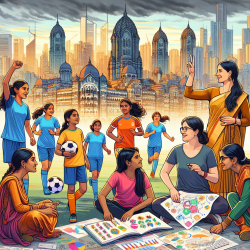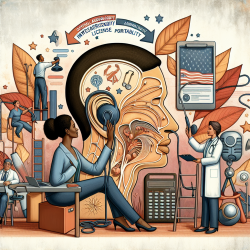Introduction
In the bustling slums of Mumbai, a group of young female mentors are challenging restrictive gender norms through a sports-based program designed for adolescent girls. This innovative initiative not only empowers young girls but also provides valuable insights for practitioners aiming to improve their skills and outcomes for children. The research titled "Contesting Restrictive Mobility Norms Among Female Mentors Implementing a Sport-Based Programme for Young Girls in a Mumbai Slum" offers a wealth of data-driven insights that can be applied in various contexts.
Understanding the Research
The study focused on female mentors aged 18 to 24 who participated in a program designed to challenge traditional gender norms. These mentors were tasked with leading reflection sessions on gender and coaching kabaddi, a contact sport, to younger girls. Through this program, the mentors negotiated freedoms both within and outside their homes, altering day-to-day social interactions with family and community members.
Key Findings
- Collective Agency: The program fostered a sense of collective agency among mentors, enabling them to strategize and negotiate greater freedom and visibility in their community.
- Negotiation Skills: Mentors developed enhanced negotiation skills, which helped them gain the trust of their families and communities.
- Challenging Norms: By taking risks as a group, mentors were able to challenge and change restrictive mobility norms.
- New Identity: The mentors formed a new reference group, redefining what was possible and acceptable for young women in their community.
Implications for Practitioners
For practitioners in the field of speech language pathology and other child-focused disciplines, the findings of this study offer several actionable insights:
- Encourage Collective Action: Programs that foster collective agency can lead to significant changes in individual and community behavior.
- Focus on Negotiation Skills: Teaching negotiation skills can empower young people to navigate and challenge restrictive norms.
- Create Safe Spaces: Providing safe environments for discussion and reflection can help participants question and redefine societal norms.
Encouraging Further Research
This study highlights the importance of understanding and addressing embedded social norms that perpetuate gender discrimination. Practitioners are encouraged to conduct further research to explore how these insights can be applied in different cultural and social contexts. By doing so, we can continue to create better outcomes for children and young people worldwide.
To read the original research paper, please follow this link: Contesting restrictive mobility norms among female mentors implementing a sport based programme for young girls in a Mumbai slum.










